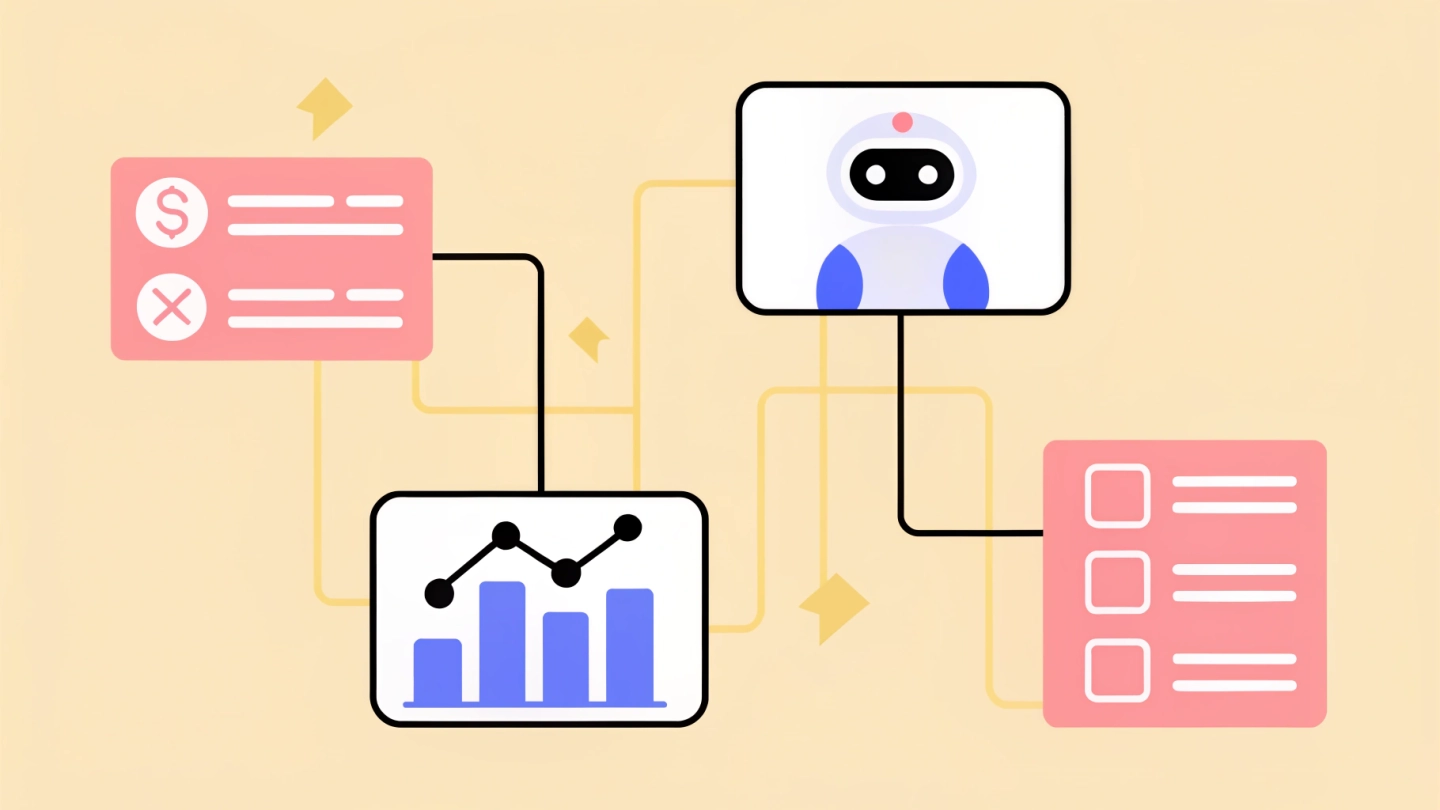What is AI sales rep? Understanding its role in modern sales

Introduction
In today’s evolving sales landscape, businesses facing new challenges and opportunities are introducing AI-driven sales representatives as a game-changing solution. These innovative tools not only simplify the management of leads but also elevate customer engagements by automating repetitive tasks and offering valuable insights. With the ability to enhance response times, minimize mistakes, and increase efficiency, AI sales representatives are now seen as resources for companies striving to stay ahead in the competitive market.
Nonetheless, making progress can be difficult due to obstacles such as privacy issues related to data and the importance of managing change effectively. This piece examines the aspects of artificial intelligence in sales, discussing its benefits, the obstacles that businesses encounter, and the exciting upcoming trends that are transforming the field.
Defining AI sales representatives: An overview
AI representatives are changing the game in lead management. They’re not just a nice-to-have; they’re essential for optimizing processes and driving efficiency. Before companies embraced this software, they wrestled with common headaches: slow responses, missed service level agreements, and wasted time chasing unproductive leads. Enter Dashly. With it, appointment scheduling can be automated by up to 90%, allowing businesses to categorize leads into high and low quality with ease.
For leads that haven’t been fully qualified by marketing — those non-MQLs — Dashly sets up a self-service system. This automates a staggering 60–70% of lead management tasks, freeing up sales teams to focus on what really matters. This AI-powered approach doesn’t just streamline customer interactions; it evaluates leads and provides comprehensive product information around the clock. And here’s a stat that speaks volumes: Dashly boasts an email open rate of 50–60%, well above the industry average of 20–30%.
The numbers tell a compelling story. A full 43% of professionals are already leveraging AI tools, and that number is climbing. By 2024, the global AI market is projected to hit $300 billion, with over three-quarters of companies expected to integrate AI solutions to enhance their sales operations. Recent studies show that Dashly’s AI technology predicts outcomes with a remarkable 99% accuracy for meeting targets and 98.33% for revenue projections. Automating routine tasks with Dashly doesn’t just smooth out operations; it empowers better decision-making based on solid data insights.
In the fast-paced world of retail, where staff can easily feel overwhelmed, the advanced features of an AI sales rep are invaluable. They’re not just tools; they’re lifelines in navigating the complexities of commerce, especially in the face of regulatory concerns that half of real estate brokerage leaders worry about.
Let’s be clear: AI sales reps are game-changers. For small business owners aiming to boost profits and streamline operations, they’re becoming indispensable. Embracing this technology isn’t just smart; it’s essential for staying competitive in today’s market.

How AI sales reps enhance sales processes
AI sales reps are game changers in the world of transactions. They streamline processes by automating tasks like data entry and scheduling meetings, allowing clients to reach out directly. Think of them as the oil that keeps the engine running smoothly. With smart algorithms, these AI agents sift through client data, pinpointing potential leads and sorting them based on specific criteria. This isn’t just about saving time; it frees up human sales reps to focus on what really matters—building and nurturing relationships that drive business growth.
The client experience gets a serious boost too. AI sales reps respond to inquiries faster and more accurately, which means better conversion rates. By automating transactions, companies see a 20% drop in human errors. Those leveraging AI report a return on investment that’s 10 to 20% higher. Sales experts have identified five key areas where AI shines:
- Ensuring data quality
- Understanding customer needs
- Personalizing interactions
- Improving prediction accuracy
- Enhancing communication with prospects and customers
As Karkhanis points out, in this AI-driven age, retaining sales representatives is more important than ever. It cuts down on the costs of hiring and training. By investing in AI solutions and continuously developing our team, we create a workforce that’s not only more efficient but also more engaged. This leads to stronger team dynamics and improved performance.
Investing in intelligent technology while prioritizing employee growth isn’t just a nice-to-have; it’s essential. A real-world case study, ‘The Impact of AI Investment and Employee Development,’ shows just how these investments can enhance productivity and employee engagement. It’s a clear reminder that the right blend of technology and talent can elevate a business to new heights.

The advantages of implementing AI in sales teams
When it comes to sales, embracing AI is no longer just a nice-to-have — it’s a game changer. Think of AI sales reps as the secret weapon in your arsenal. They boost productivity, cut costs, and manage leads like pros. Recent studies show that integrating AI into commercial operations can ramp up productivity by a staggering 40%. That’s not just a number; it’s a wake-up call for businesses to recognize the transformative power of technology.
Now, let’s talk about the perception of AI. A significant 85% of people believe we need a national effort to ensure the safety and security of AI systems. This isn’t just chatter; it’s a clear sign that businesses are starting to grasp the importance of AI in their operations.
AI sales reps are built to handle inquiries faster and more efficiently than any human ever could. This means quicker responses and happier clients. They sift through data, spot trends, and deliver insights that empower sales teams to make informed decisions. HubSpot nails it when they say their AI tools help businesses optimize marketing, commerce, and service operations, all while delivering tailored experiences at scale.
Experts have identified five key areas where AI is making waves:
- Improving data integrity
- Gaining insights into customer needs
- Personalizing services
- Enhancing forecasting accuracy
- Streamlining interactions with prospects and existing customers
By simplifying processes and reducing workloads, companies can lower operational costs and see better returns on their investments.
In today’s fast-paced market, using AI sales reps isn’t just about keeping up with technology; it’s about gaining a strategic edge. The benefits of incorporating AI are becoming essential for companies that want to stay competitive. If you’re not on board, you might just find yourself left behind. Embrace the change, and let AI drive your sales success.

Challenges in adopting AI sales representatives
When businesses decide to bring AI sales reps into the fold, they’re not just flipping a switch. They’re stepping into a minefield of challenges that can derail the best intentions. First up, integrating these AI tools with existing systems isn’t just a minor headache — it’s a full-blown technical puzzle that demands time and resources. On top of that, there’s the privacy concern. AI systems often handle sensitive client information, so staying compliant with regulations isn’t just important; it’s mandatory.
Consider this:
- 67% of customer service professionals are already using AI to automate communications,
- 68% are leveraging it for content creation.
The potential applications of AI in streamlining transactions are evident. But here’s the kicker — the effectiveness of these systems hinges on the quality of the data they’re trained on. If you feed them mediocre data, you’re risking the entire qualification process and, ultimately, missing out on valuable opportunities.
Now, let’s talk about resistance. Marketing teams that cling to traditional methods can see AI as a threat rather than an ally. This mindset can create friction, making it crucial for companies to invest in training and change management initiatives.
To overcome these hurdles, businesses need to cultivate an environment where AI tools are seen as partners, not competitors. This shift in perspective can drive growth and boost revenue efficiency. And the numbers back this up. The Insight Partners predicts that earnings from AI chips will soar to $83.25 billion by 2027. Plus, with over 4 billion voice assistants in use globally, the momentum for AI adoption is undeniable.
A real-world example comes from the U.S. Army Corps of Engineers. They’ve strategically implemented AI systems and spatial analysis, leading to cost savings of about $100 million per year. That’s not just smart; it’s a blueprint for how thoughtful integration of AI can yield substantial benefits.
In short, the road to AI integration is fraught with challenges, but the rewards are too significant to ignore. Get it right, and you’re not just keeping pace; you’re setting the pace.

The future of AI sales representatives: Trends and innovations
The future of AI sales reps is on the rise, thanks to breakthroughs in machine learning and tools like natural language processing and predictive analytics. The big trend? Integrating AI sales reps into customer relationship management (CRM) systems. This move allows businesses to personalize their interactions with clients like never before.
Think about it: voice recognition tools and advanced data analysis are game-changers. They’re set to revolutionize how we qualify leads and engage customers. As AI continues to develop, marketing teams will lean more on these AI sales reps to stay competitive in a market that’s always in flux.
A recent report shows that 30% of business owners plan to use AI for generating website content. This isn’t just a trend; it’s a sign of the growing reliance on AI across marketing functions. And let’s not overlook the numbers: The Insight Partners predicts global AI chip revenue will hit $83.25 billion by 2027. That’s a clear signal that investments in AI are ramping up, improving the efficiency of AI sales reps.
Now, let’s take a practical example. A study titled “The Impact of Advanced Pre Sales Tactics on Boosting Sales Performance from the Get Go” demonstrates how crucial it is for sales professionals to build relationships with clients and spot new sales opportunities. This is essential for hitting sales targets.
However, there’s a catch. About 70% of high achievers face hurdles with data governance and integration. This underscores the need for solid data handling practices. If you want to tap into the full potential of these innovative AI technologies, you’ve got to get your data game right.

Conclusion
AI powered sales representatives are changing the way sales are done by boosting effectiveness and streamlining customer engagement while automating tasks like never before. Using AI tools like Dashly has shown enhancements in lead management efficiency; automation cuts down time spent on unproductive tasks and empowers sales teams to concentrate on nurturing client relationships. The remarkable data showing response rates and predictive precision highlight AI’s capability to revolutionize sales processes and become a tool for businesses aiming to excel in a competitive market.
Nevertheless, using AI comes with its set of difficulties. Companies need to handle the complexities of integrating AI as well as address concerns about data privacy and the resistance that may come from traditional sales teams. It’s important for businesses to overcome these challenges through training and change management practices in order to fully reap the rewards that AI technologies offer. In a changing market landscape, organizations that put resources into advancing AI will be able to make better use of data insights, boost operational efficiency, and drive growth in sales in the long run.
In the coming years, the outlook for AI in sales appears promising as advancements in machine learning, natural language processing, and predictive analytics continue to evolve to improve customer relationship management. By adopting these tools, companies can streamline operations, deliver customized experiences to customers, build loyalty, and boost profits. Making AI a key part of sales strategies will be crucial for staying in a tech-driven market.




![10-step Guide on How to Create a Chatbot for your Website [Build without code]](https://www.dashly.io/blog/wp-content/uploads/2022/06/How-to-create-a-chatbot-to-automate-conversations-with-your-website-visitors-720x317.png)


